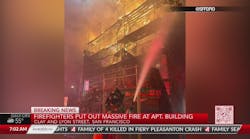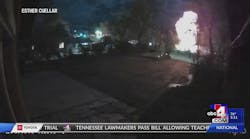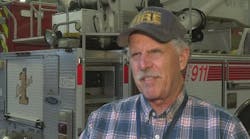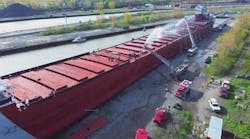BETHESDA, MD – March 25, 2013– A recent nationwide survey conducted by Society of Fire Protection Engineers (SFPE) revealed that 65 percent of Americans feel safer from the dangers of fire at home. Only 10 percent feel safer in a commercial or public building.
“This is an alarming misconception,” said Chris Jelenewicz, SFPE’s program manager. “Actually, fires in dwellings account for the majority of life loss due to fire.”
Federal government statistics report that in 2011, residential fires resulted in 2,450 deaths and 13,900 injuries. Non-residential building fires resulted in 80 deaths and 1,100 injuries.
Additionally, the survey revealed that 57 percent of Americans believe changes in materials used for furnishings and building materials over the last 25 years make them feel safer in their homes. At the same time only 4 percent of the respondents felt less safe.
“This is another misconception,” said Jelenewicz. “In fact research has demonstrated that at least in North America, changes in materials used for furnishings, building materials and components, and construction methods have resulted in the potential for an increased level of hazard from an accidental dwelling fire.”
In order to reduce the loss of life from residential fires, the use of engineered components, systems and technologies such as smoke alarms, fire sprinklers, improved safety controls on cooking and heating appliances, and improved fire safe material technologies can significantly reduce the fire hazard within residential structures and thereby reduce the loss of life from residential fires.
“Many people do not recognize the important role systems engineered by fire protection engineers play in protecting our families from fire in the home,” said Jelenewicz. “When properly installed and maintained, these systems can significantly improve your chances of surviving a fire in the home.”
Jelenewicz offers the following recommendations to protect you from fires in the home:
- Make sure a smoke alarm is installed on every level of your home, including the basement.
- When installing smoke alarms, always follow the manufacturer’s installation instructions.
- Test your smoke alarm monthly.
- The combination of working smoke alarms and home fire sprinklers reduces the likelihood of death from fire by more than 80 percent. So consider installing home fire sprinklers in your home.
- Always use cooking equipment that is tested and approved by a recognized testing facility.
- Follow manufacturers' instructions and code requirements when installing and operating cooking equipment.
- Have your furnace inspected by a heating professional regularly to ensure that it is in good working condition.
For more results on the survey, contact [email protected].
These are some of the findings of an Ipsos poll conducted January 23-26, 2013. For this survey, a national sample of 1,000 adults aged 18 and older from Ipsos' U.S. online panel who have agreed to participate in Ipsos studies were interviewed online. Weighting was then employed to balance demographics and ensure that the sample's composition reflects that of the U.S. adult population according to Census data and to provide results intended to approximate the sample universe. A survey with an unweighted probability sample of this size and a 100% response rate would have an estimated margin of error of +/- 3.1 percentage points 19 times out of 20 of what the results would have been had the entire adult population of the United States had been polled. All sample surveys and polls may be subject to other sources of error, including, but not limited to coverage error, and measurement error.
What is a Fire Protection Engineer?
According to the Society of Fire Protection Engineers, a fire protection engineer applies science and engineering principles to protect people, homes, workplaces, the economy and the environment from the devastating effects of fires. Fire protection engineers analyze how buildings are used, how fires start and grow, and how fires affect people and property. They use the latest technologies to design systems to control fires, alert people to danger, and provide means for escape. Fire protection engineers also work closely with other professionals, including engineers of other disciplines, architects, state and local building officials, and local fire departments to build fire safe communities. Fire protection engineers are in high demand. The number of available jobs far exceeds the supply.





